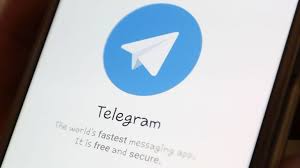
Pavel Durov, the Russian-French billionaire and founder of the Telegram messaging app, was arrested at Bourget airport outside Paris on Saturday evening, according to reports by French media outlets TF1 and BFM TV. Durov, who was traveling aboard his private jet, was reportedly detained under an arrest warrant issued in France as part of a preliminary police investigation. The investigation focuses on Telegram's moderation practices, or lack thereof, which authorities believe have allowed criminal activities to proliferate on the platform.
The arrest of Durov, who faces possible indictment, has ignited a global debate on the balance between platform accountability and the protection of free speech. Telegram, an encrypted messaging app with nearly one billion users, plays a particularly significant role in Russia, Ukraine, and other former Soviet republics. Its influence has only grown since the start of the Russia-Ukraine conflict in 2022, with the platform becoming a primary source of unfiltered content from both sides.
Durov, who founded Telegram with his brother in 2013, left Russia in 2014 after refusing to comply with government orders to shut down opposition communities on his previous platform, VKontakte. In a conversation with U.S. journalist Tucker Carlson, Durov emphasized his commitment to freedom, stating, "I would rather be free than to take orders from anyone." His firm stance on maintaining Telegram as a "neutral platform" has attracted both praise and scrutiny from various governments.
Following Russia's invasion of Ukraine, Telegram became a critical tool for disseminating information about the war. It is widely used by Ukrainian President Volodymyr Zelenskiy, his officials, and the Russian government, earning it the label of a "virtual battlefield" by some analysts. The platform has also served as one of the few remaining sources of independent news for Russians, especially after the Kremlin tightened its grip on the media.
The Russian foreign ministry announced that its embassy in Paris is working to clarify the circumstances surrounding Durov's arrest, calling on Western NGOs to demand his release. The arrest has drawn sharp criticism from Russian officials, with Mikhail Ulyanov, Russia's representative to international organizations in Vienna, accusing France of acting like a dictatorship. Ulyanov’s comments echoed the criticism Russia faced when it attempted to ban Telegram in 2018 after the app refused to grant state security services access to encrypted messages.
Elon Musk, owner of X (formerly Twitter), weighed in on the situation, stating, "It's 2030 in Europe and you’re being executed for liking a meme." Robert F. Kennedy Jr., who recently endorsed Republican Donald Trump after ending his U.S. presidential campaign, also commented on the incident, stressing the urgency of protecting free speech.
The growing popularity of Telegram, particularly in Europe, has prompted increased scrutiny over security and data privacy concerns. Durov’s arrest underscores the ongoing tension between the need for robust platform moderation and the preservation of free speech, a debate that is likely to intensify in the coming days.
Several Russian bloggers have called for protests at French embassies worldwide, reflecting the international repercussions of Durov’s detention and the broader implications for digital freedom and governance.
(Source:www.livemint.com)
The arrest of Durov, who faces possible indictment, has ignited a global debate on the balance between platform accountability and the protection of free speech. Telegram, an encrypted messaging app with nearly one billion users, plays a particularly significant role in Russia, Ukraine, and other former Soviet republics. Its influence has only grown since the start of the Russia-Ukraine conflict in 2022, with the platform becoming a primary source of unfiltered content from both sides.
Durov, who founded Telegram with his brother in 2013, left Russia in 2014 after refusing to comply with government orders to shut down opposition communities on his previous platform, VKontakte. In a conversation with U.S. journalist Tucker Carlson, Durov emphasized his commitment to freedom, stating, "I would rather be free than to take orders from anyone." His firm stance on maintaining Telegram as a "neutral platform" has attracted both praise and scrutiny from various governments.
Following Russia's invasion of Ukraine, Telegram became a critical tool for disseminating information about the war. It is widely used by Ukrainian President Volodymyr Zelenskiy, his officials, and the Russian government, earning it the label of a "virtual battlefield" by some analysts. The platform has also served as one of the few remaining sources of independent news for Russians, especially after the Kremlin tightened its grip on the media.
The Russian foreign ministry announced that its embassy in Paris is working to clarify the circumstances surrounding Durov's arrest, calling on Western NGOs to demand his release. The arrest has drawn sharp criticism from Russian officials, with Mikhail Ulyanov, Russia's representative to international organizations in Vienna, accusing France of acting like a dictatorship. Ulyanov’s comments echoed the criticism Russia faced when it attempted to ban Telegram in 2018 after the app refused to grant state security services access to encrypted messages.
Elon Musk, owner of X (formerly Twitter), weighed in on the situation, stating, "It's 2030 in Europe and you’re being executed for liking a meme." Robert F. Kennedy Jr., who recently endorsed Republican Donald Trump after ending his U.S. presidential campaign, also commented on the incident, stressing the urgency of protecting free speech.
The growing popularity of Telegram, particularly in Europe, has prompted increased scrutiny over security and data privacy concerns. Durov’s arrest underscores the ongoing tension between the need for robust platform moderation and the preservation of free speech, a debate that is likely to intensify in the coming days.
Several Russian bloggers have called for protests at French embassies worldwide, reflecting the international repercussions of Durov’s detention and the broader implications for digital freedom and governance.
(Source:www.livemint.com)














